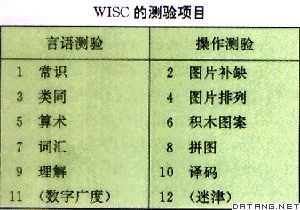1) Children of preschool age


学龄前后儿童
2) preschooler
[英][,pri:'sku:lə] [美][,pri'skulɚ]


学龄前儿童
1.
Evaluation on clinical effect of comprehensive oral interventions to preschooler-caries;


学龄前儿童龋齿综合干预措施临床效果评价
2.
Investigation of preschooler s sexual correlative behaviors and early sexual education for them;
学龄前儿童常见性相关行为及早期性教育探讨
3.
Investigation and analysis on amblyopia and psychogenic behaviors in 2635 preschooler;


2635名学龄前儿童弱视筛查和心理行为的调查分析
3) Pre-school children


学龄前儿童
1.
Growth promoting effect of multivitamins supplementation in pre-school children.;


补充多元维生素对学龄前儿童生长的促进作用
2.
Treatment for the blepharoptosis of the pre-school children with the suspension of frontal muscle flap in general anesthesia;
全麻下额肌瓣悬吊术治疗学龄前儿童先天性上睑下垂
3.
Methods The comprehensive methods of fuzzy mathematics are adopted in the studies of the effects of familial factors on pre-school children s mental behavior growth.
方法运用模糊数学综合评判方法,探讨家庭环境因素对学龄前儿童心理行为发育的影响。
4) Preschool child


学龄前儿童
1.
Investigation of eyesight status among 1 866 preschool children;


学龄前儿童1866名视力状况调查分析
2.
Analysis on influential factors of aggressive behavior among preschool children in Zhuhai City;
珠海市学龄前儿童攻击性行为影响因素分析
3.
Comparative study of effective factors on psychological and behavioral problems for preschool children in Li and Han nations.;
黎、汉族学龄前儿童行为问题影响因素的对照研究
5) pre school children


学龄前儿童
1.
Objective:To study the relation between family factors and dental caries in pre school children.
目的 :研究学龄前儿童家庭因素与龋病的关系。
2.
Objective To study diet and nutrition on obesity of pre school children.


为探讨膳食营养与学龄前儿童肥胖的关系 ,采用食物称重及 2 4小时记录方法 ,了解调查对象一周内在幼儿园及家中的膳食情况。
6) Preschool children


学龄前儿童
1.
Measurement of mesiodistal crown dimensions of 172 preschool children;


学龄前儿童172名乳牙近远中径的测量
2.
Investigation on haemal mineral status among 1353 preschool children;


1353名学龄前儿童血液中部分矿物质含量调查分析
3.
Correlation analysis of vitamin A and iron nutritional status on preschool children in the suburb of Chongqing;
重庆市郊区学龄前儿童维生素A和铁营养状况相关性分析
补充资料:韦克斯勒学龄儿童智力量表
| 韦克斯勒学龄儿童智力量表 Wechsler Intelligence Scale for Children 美国心理学家D.韦克斯勒制定的 ,适用于6~16岁儿童的智力测验工具。简称WISC。量表包括言语和操作两大类的12个分测验(见表)。
各分测验下设数目不等的测验题,按难度等级次序排列。评分方法是:先分别评定、计算各分测验的原始分数,然后将被试所得分测验的原始分数,通过各自年龄的常模转化为量表分数。最后,仍以智商(IQ)为标志评定智力总水平。 韦克斯勒学龄儿童智力量表的信度与效度都较高。它在国际上被认为是与斯坦福-比奈智力量表并驾齐驱的评定智力的优良量表。韦氏儿童智力量表在中国已有修订本。 |
说明:补充资料仅用于学习参考,请勿用于其它任何用途。
参考词条
